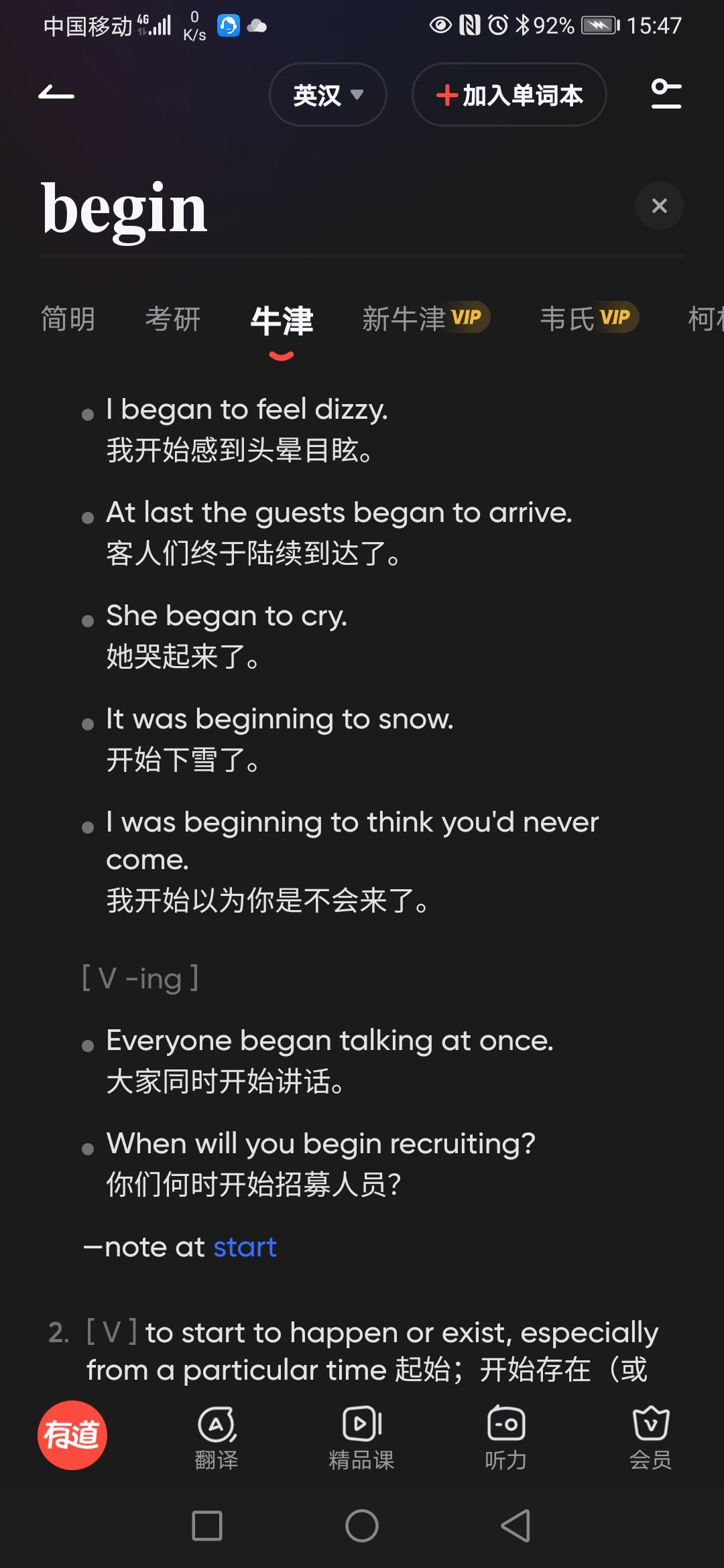 我查询牛津词典中关于单词begin的用法,单词后面有跟不定式的,也有跟分词的,我一个人找不出什么情形下用不定式,何时用分词。请指教。
我查询牛津词典中关于单词begin的用法,单词后面有跟不定式的,也有跟分词的,我一个人找不出什么情形下用不定式,何时用分词。请指教。
begin to do一般译为"开始做```',用于表示主语之前没做这件事
eg;After finishing the homework,he began to watch TV.
begin doing 一般译为”开始(继续)做”,用于表示主语之前就在做的某件事,中间有小小停顿,目前继续开始做.
eg;He was doing homework when the telephone rang ,it was mother,after answering it,he began working again
begin doing 多重视于直接开始做某件事,而begin to do 是多重视于重一种状况过度到另一种状况
通常来讲,begin to do和begin doing可以互换,但在以下三种状况下,用to do:
1.主语不是指人,而是it等.如:It began to rain.
2.begin后接表示心理活动的词.如:begin to know
believe,wonder,think等.
3.begin本身是ing形式,为防止重复后接to do
即,beginning to do
P.S.
doing 一般有正在做的意思
to do一般有正筹备做的意思
所以doing 就是开始做了to do开始要做,还没有做
另外和begin类似使用方法的还有start:
start doing 和start to do有什么区别
1)当大家谈论一项长期的或习惯性的活动时,用doing形式的情形较多。
How old were you when you first started playing the piano? 你刚开始弹钢琴的时候有多大?
*比较She sat down at the piano and started to play. 她在钢琴前坐下开始弹了起来。
2)start 的进行时态之后,不需要doing形式。
①I was starting to get angry. 我开始发火了。
②I am starting to cook the dinner. 我正要开始煮饭。
3)在 start 之后出现的动词涉及感情或思想时,只可用不定式。
①She started to understand what he really wanted. 她开始了解他真的想要什么。
②She started to wonder why he was here. 她开始感觉奇怪为何他会在这儿。
4)当主语是物不是人时,要用不定式。
 我查询牛津词典中关于单词begin的用法,单词后面有跟不定式的,也有跟分词的,我一个人找不出什么情形下用不定式,何时用分词。请指教。
我查询牛津词典中关于单词begin的用法,单词后面有跟不定式的,也有跟分词的,我一个人找不出什么情形下用不定式,何时用分词。请指教。 我查询牛津词典中关于单词begin的用法,单词后面有跟不定式的,也有跟分词的,我一个人找不出什么情形下用不定式,何时用分词。请指教。
我查询牛津词典中关于单词begin的用法,单词后面有跟不定式的,也有跟分词的,我一个人找不出什么情形下用不定式,何时用分词。请指教。